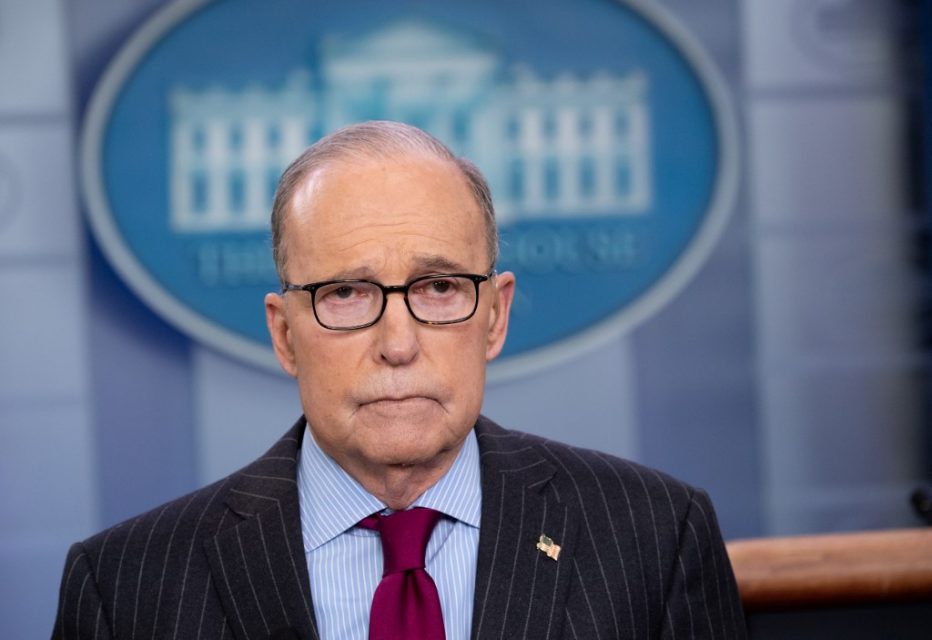
WASHINGTON, United States (AFP) — The United States feels let down by a lack of transparency from China over the new-coronavirus crisis, a senior White House official said Thursday, contradicting President Donald Trump’s confidence in Beijing.
“We are a little disappointed that we haven’t been invited in and we’re a little disappointed in the lack of transparency coming from the Chinese,” Larry Kudlow, the director of the National Economic Council, told reporters.
Trump on Thursday again praised his Chinese counterpart Xi Jinping for his government’s response to the outbreak, which has officially killed 1,367 people and infected nearly 60,000 since December.
But Kudlow said that unanswered questions were mounting and there was no sign of the promised cooperation.
“President Xi assured President Trump that China was on it and there would be openness, they would accept our help,” he added.
“We’re more than willing to work with the UN (and) WHO on this and they won’t let us. I don’t know what their motives are. I do know that apparently more and more people are suffering over there.”
“Is the Politburo really being honest with us?” he asked, referring to communist China’s top leadership body.
An international mission led by the World Health Organization is expected to arrive in China over the weekend.
China had been praised by the WHO for its handling of the outbreak, in contrast to the way it concealed the extent of the deadly SARS virus epidemic in 2002-2003.
Skepticism
But the government has faced continued skepticism among the global public. Criticism intensified after the death of a doctor who had tried to raise the alarm about the outbreak in December but was silenced by authorities.
Trump told the Geraldo Rivera “Roadkill” radio program that he has confidence in Beijing and understood officials’ reluctance to provide information.
“I think they want to put the best face on it,” he said. “You wouldn’t want to run out to the world, and go crazy and start saying whatever it is, because you don’t want to create a panic.”
“I think they’ve handled it professionally and I think they’re extremely capable and I think President Xi is extremely capable,” he said.
Contrary to Kudlow’s description of Beijing’s not allowing access, Trump said: “We’re working with them. We’re sending a lot of people.”
Trump also repeated his belief that seasonally warmer weather in April could spell the end of the virus, a prognosis at odds with top US health officials who caution against commenting on the epidemic’s trajectory.
“The April date is very, very important because if that’s the case, if the heat does in fact kill, that’s when it starts getting hot and this virus reacts very poorly to heat and dies,” Trump said.
Kudlow predicted that the economic impact would be “quite minimal” for the United States, but said that fears over the coronavirus were creating “uncertainty.”
“If we don’t get good information out of China, it’s very hard for us to make a decent assessment,” he said.
Beijing’s United Nations Ambassador Zhang Jun told the UN Commission for Social Development on Wednesday that China has “always adopted an open, transparent and highly responsible attitude” towards the epidemic.
“We have reported the epidemic information to the WHO, the relevant countries, and Hong Kong, Macau and Taiwan regions as soon as it is available, shared the genetic sequences of the virus, actively communicated with other countries in order to come up with responses,” he said.
© Agence France-Presse








